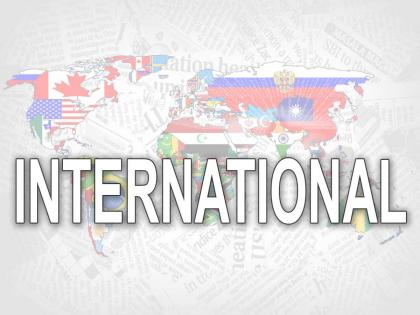SL polls: Rajapaksa, Premadasa represent polar opposites
By IANS | Published: November 15, 2019 09:28 AM2019-11-15T09:28:05+5:302019-11-15T09:35:04+5:30
Former Defence Minister Gotabaya Rajapaksa and Cabinet Minister Sajith Premadasa, the two main candidates of Sri Lanka's presidential election, are known to represent two polar opposites in a country yet to recover from the wounds of a civil war and one still reeling from brutal terror attacks carried out during Easter.

SL polls: Rajapaksa, Premadasa represent polar opposites
The island nation's eighth presidential election is scheduled to take place on Saturday morning with an estimated 16 million people, out of the 22 million population, eligible to vote.
Although there are a record 35 candidates in the fray, it appears that only Premadasa, son of a former President killed by the separatist Tamil Tigers, and Rajapaksa, from the family that was the architect of a campaign that brought an end to the bloody war in 2009, were the main contenders for the country's highest office, Efe news reported.
Gotabaya, the candidate of the nationalist party Sri Lanka Podujana Peramuna (SLPP), is a retired 70-year-old soldier who took over Sri Lanka's defence portfolio during the period when his older brother, Mahinda Rajapaksa, was President (2005-2015).
He joined the Sri Lankan Army in 1971 when the former British colony, which gained its independence in 1948, was still known as Ceylon.
After retiring from the army and living seven years in the US, Gotabaya returned to Sri Lanka in 2005 to help his brother Mahinda Rajapaksa with his presidential election campaign.
Mahinda's victory directly propelled him to the position of Defence Minister, as a part of which he oversaw military operations against the LTTE guerrillas.
During his tenure, Gotabaya was the target of an attack in which a man attempted to ram the car he was travelling in with a vehicle loaded with explosives. However, the security team foiled the attack and Gotabaya escaped unscathed.
Along with his brother Mahinda, Gotabaya represents a family that is seen by a section of the population as the heroes who managed to end the nearly three-decade long civil war with the LTTE.
Whereas for others they are the embodiment of the brutality of a war that left thousands dead and several thousands more missing from the Tamil minority community.
Like his brother, Gotabaya was accused of human rights offences and of involvement in several murders, including that of Lasantha Wickramatunga, a prominent journalist and editor of the Sunday Leader newspaper, who was shot in his car in 2009 by masked men on motorcycles.
While the family's political future appeared to be fading after Mahinda's defeat in the last presidential election in 2015, the April 21 Easter bombings on churches and luxury hotels - in which 269 people lost their lives - lent wings to Gotabaya's candidacy.
Gotabaya has presented himself during the presidential campaign as a nationalist and champion of the Sinhalese Buddhist majority, while promising strong national security in the wake of the attacks that were claimed by the Islamic State terror group.
On the other hand, questions about whether he gave up his US citizenship before filing his nomination have sparked controversy over the legality of his candidature.
Meanwhile, Sajith Premadasa, 52, is the son of Ranasinghe Premadasa, who served as the President of Sri Lanka from 1989 until he was assassinated in May 1993 in Colombo in a suicide bombing by the LTTE.
The candidate of the New Democratic Front (NDF) coalition is seen as the most likely contender to defeat Gotabaya, and his name represents a ray of hope for the Muslim and Tamil minorities who believe him coming to power could help safeguard their rights.
Raised in a privileged family, Sajith Premadasa made the leap into politics shortly after the death of his father. Since then, he has risen up the ranks and was appointed Minister of Housing and Construction by incumbent President Maithripala Sirisena.
But the presidential candidate has had to face strong opposition within his own ruling United National Party (UNP), especially in the form of its leader and current Prime Minister Ranil Wickremesinghe.
His nomination by the UNP as its presidential candidate was initially blocked by Wickremesinghe, who also aspired for the position and has always seen him as a threat to his authority within the party.
Sajith has portrayed himself as the saviour of the poor, just like his father did before being elected president in 1989, and his coalition is made up of several minority political formations minority including two major Muslim parties.
The other important candidates are Marxist Janatha Vimukthi Peramuna (JVP) or People's Liberation Front's Anura Kumara Dissanayaka and the National People's Movement's (NPM) Mahesh Senanayake, a former army commander who retired in August 2019 after serving in the military for 36 years.
( With inputs from IANS )
Open in app